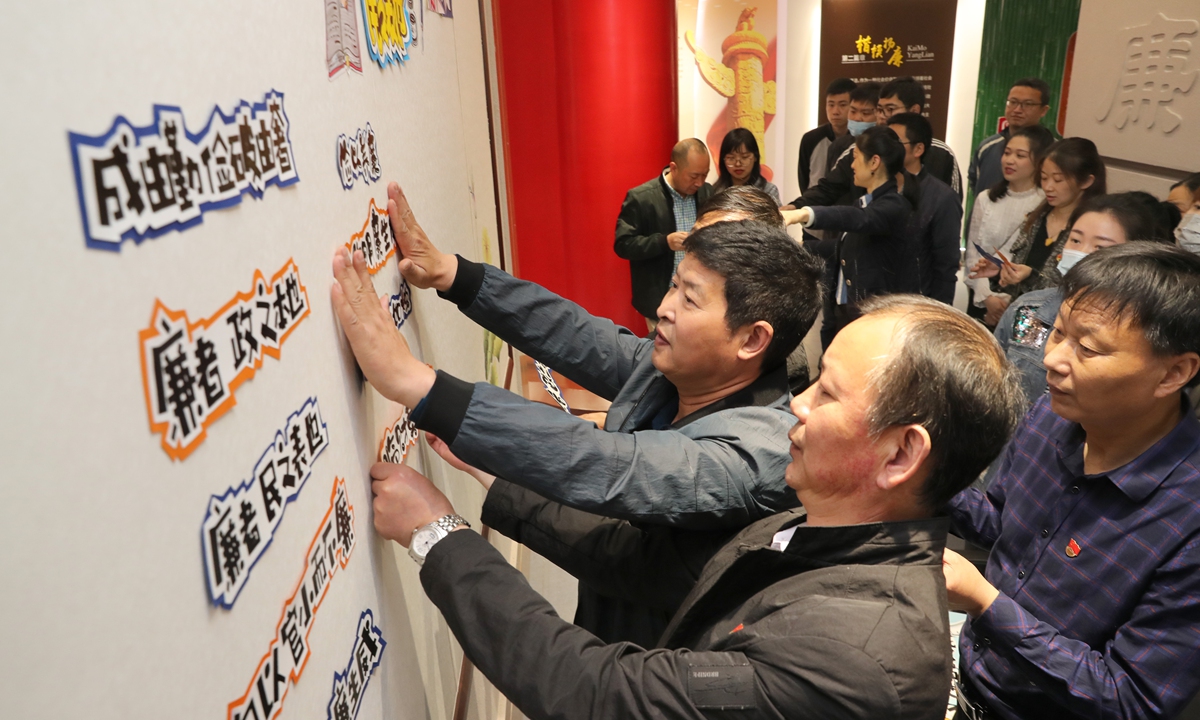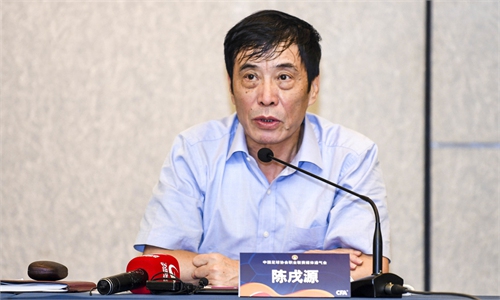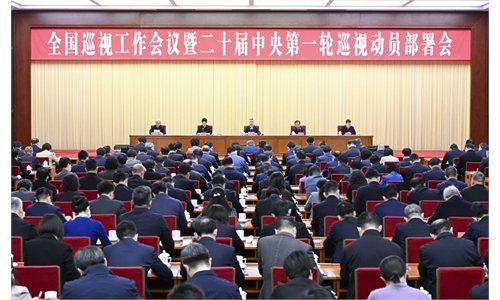
Local civil servants decorate a themed wall at an exhibition featuring combating corruption and building a clean government in Nantong, East China's Jiangsu Province. Photo: IC
A senior official in East China's Jiangxi Province is under investigation for suspected severe violations of Party discipline and laws, according to an official statement on Wednesday. This brings the number of provincial- and ministerial-level officials put under investigation since the two sessions to six.
The number once again reflects the intensity and determination of the Communist Party of China (CPC) to fight corruption, experts told the Global Times. Compared with the period before the 20th CPC National Congress, the fight is now broader and deeper, with a greater focus on corruption that seriously harms public interests.
The latest senior official under investigation is Yin Meigen, serving as deputy secretary of the leading Party members group of the Standing Committee of the Jiangxi Provincial People's Congress and vice-director of the standing committee. He is being investigated by the Communist Party of China Central Commission for Discipline Inspection (CCDI) and the National Commission of Supervision, according to an official statement released on Wednesday, the Xinhua News Agency reported.
Yin was just elected deputy secretary of the leading Party members group of the Standing Committee of the Jiangxi Provincial People's Congress in January 2023.
According to official announcements, six provincial and ministerial officials have been put under investigation after the 2023 two sessions, which concluded on March 13. The number reflects the intensity of the CPC's efforts to tackle corruption and proves its determination, Zhi Zhenfeng, research fellow of the Institute of Law of the Chinese Academy of Social Sciences, told the Global Times on Wednesday.
"Corruption is the biggest cancer to the vitality and ability of the CPC, and the fight against corruption is a thorough self-revolution," Zhi said. "The CPC Central Committee remains extremely sober on this issue."
He pointed to the series of moves as further evidence that the Party's anti-corruption efforts are long-term instead of temporary, as stated in the report to the 20th National Congress of the CPC.
The Party will continue to take simultaneous, coordinated and comprehensive steps to ensure that officials do not have the audacity, opportunity, or desire to become corrupt. We must show zero tolerance in opposing corruption and punishing wrongdoing, and we must take more forceful action to both prevent new cases and root out existing ones, the report said.
In the past few months, anti-corruption moves have swept through many fields. Under the spotlight are many sports officials and leaders of state-owned enterprises who are under investigation.
On Wednesday, two more former top-tier Chinese soccer officials were put under investigation, according to China's disciplinary watchdog, bringing the total number of senior soccer officials under investigation to eight.
In the past few weeks, more than 10 leaders of state-owned firms have been put under investigation, according to the CCDI.
On Monday, a list of targets of the latest round of inspection was announced, including the Party groups of 30 state-owned enterprises administrated by central authorities and the Party committees of five centrally administrated state-owned financial institutions.
Compared with the period before the 20th CPC National Congress, the Party's fight against corruption is now much more in-depth, said Zhi. "One of the important features is the resolute punishment of corruption that was closely felt by the general public. The Party is conducting all-round and deep-seated investigations and punishments for corruption that the public has long detested."
"The unprecedented fight against corruption will continue to advance," Zhi said.



